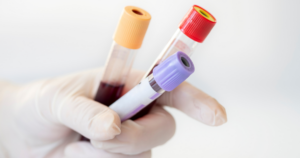Ensuring the health and well-being of employees is of utmost importance in the hectic workplace of today. A Fit to Work assessment, which includes a full medical health checkup to assess a person’s fitness for work, is one efficient way to accomplish this. Employers can foster a secure and effective work environment while putting their employees’ general health first by conducting a thorough FTW evaluation.
Fit to Work Assessment: Medical Health CheckUp Checklist
The necessity of a medical examination for employment
Workplace medical examinations are essential for preventing workplace dangers, lowering the likelihood of accidents, and protecting employee health. Employers can take the necessary action to offer the support, adjustments, or preventive treatments that are required by recognizing any existing health issues or prospective dangers. Regular health exams help to identify problems early, which allows for prompt treatment and better employee health outcomes.
Getting Ready for the Fit to Work Evaluation
It is crucial to fully prepare before conducting an FTW examination in order to guarantee accurate results and maximize the evaluation’s advantages. Employees should be made aware of the assessment’s goals, its component parts, and any special guidelines they must adhere to in advance. This can entail going without food or drink for a period of time before blood testing, abstaining from particular drugs or substances, or dressing appropriately for physical examinations.
Key Elements of a Medical Health Checkup Checklist

- General physical examination: This is a thorough evaluation of one’s physical condition as a whole, including assessing various body systems, monitoring vital signs, and inspecting the body for any obvious anomalies. Measurements of vital indicators, such as blood pressure, heart rate, respiration rate, and body temperature are used to evaluate fundamental physiological processes.
- Blood tests and laboratory screening: A variety of blood tests, including complete blood counts, lipid profiles, liver and kidney function, blood glucose levels, and infectious disease screening, may be performed to assess various health factors.
- Assessment of vision and hearing: To assure the best sensory function required for the particular job needs, evaluations of visual acuity, color vision, and hearing abilities are performed.
- Cardiovascular Health Evaluation: Determining the employee’s heart health and identifying any potential dangers using electrocardiogram (ECG) tests, stress tests, or other pertinent studies. In order to identify any respiratory abnormalities or limitations, respiratory function testing involves assessing lung function using spirometry tests or other methods.
- Musculoskeletal Examination: Examining the musculoskeletal system to look for any current injuries, conditions, or limits that might affect the person’s capacity to carry out particular duties relevant to their line of work.
- Assessment of mental health to determine whether employees are mentally capable of performing their job duties, including stress, anxiety, depression, or other psychological illnesses.
- Testing for infectious diseases is especially important in pandemic scenarios or in occupations where exposure to infectious agents is expected.
- Examining an employee’s immunization history and making sure that mandatory immunizations, like those for tetanus or influenza, are current.
- Drug and Alcohol Testing: The process of administering tests to determine whether an individual has drugs or alcohol in their system, particularly for occupations or industries that require a high level of safety and where impairment might result in serious dangers.
Reviewing a person’s medical history to learn about any existing ailments, long-term illnesses, or past injuries that might affect their ability to carry out specific jobs safely.
Recommendations for Medical Health Checkup Timing and Frequency
The timing and frequency of FTW evaluations may change based on the type of work, industry laws, and personal health risks, among other things. Depending on the employee’s age, the particular job needs, and pertinent health issues, it is generally advised to undertake initial assessments during the pre-employment stage and then on an ongoing basis.
Observance of Occupational Health and Safety Regulations
Employers must make sure that FTW evaluations adhere to legal regulations and occupational health standards established by regulatory organizations. These tests should follow privacy and confidentiality guidelines, and the outcomes should only be used to assess employees’ readiness for the job and provide any necessary help.
Advice for Conducting a Successful Fit-to-Work Assessment
A successful FTW assessment depends on the following:
- Explain the assessment process and its goal to employees in plain language.
- Give detailed instructions and direction on any preparations that are necessary.
- Conduct the assessments in conjunction with licensed healthcare professionals.
- Keep thorough, private records of the results of the examination.
- Depending on the results, put the proper follow-up measures into action.

Benefits of Routine Medical Checkups
Regular FTW assessments have a number of advantages, such as:
- early detection of hazards or health issues.
- enhancing employee health and avoiding work-related illnesses or accidents.
- ensuring that workers are capable of carrying out their duties in a physical and mental manner.
- obeying the rules on occupational health and safety.
- Increased output and less absenteeism as a result of better general health.
- Possible Results and Next Steps
FTW assessments may reveal a variety of results, including the need for certain adjustments or treatments, the recognition of potential workplace risks, or the identification of underlying health issues. Based on these findings, companies can make the necessary adjustments to solve issues, offer required assistance, and guarantee the safety and well-being of their workers.
Also Read: Pre-Employment Health Checkup, Drug Test & Substance Abuse Screening: Guidelines & Policies
Conclusion
A thorough Fit to Work evaluation that includes a medical health checkup checklist is a proactive strategy to encourage worker health and safety. Employers may increase employee productivity and well-being by instituting frequent assessments that help them recognize and manage health issues, offer the right support, and foster a positive work environment.
References
- Criteria and methods used for the assessment of fitness for work: a systematic review: https://pubmed.ncbi.nlm.nih.gov/17095547/
- Criteria and methods used for the assessment of fitness for work: a systematic review: https://www.ncbi.nlm.nih.gov/pmc/articles/PMC2092557/
- Assessment of fitness for work in health care workers: biomechanical risk factors: https://pubmed.ncbi.nlm.nih.gov/22838297/
- Health appraisal for work adjustment of freshmen employees–information on health checkup just after entering the corporation and condition in the next fiscal year: https://pubmed.ncbi.nlm.nih.gov/7749991/


